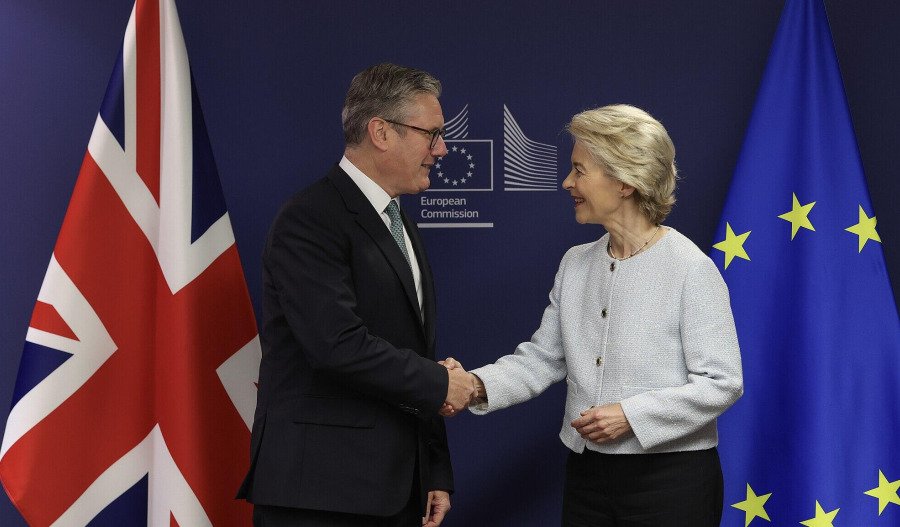A landmark trade deal struck between the United Kingdom and the European Union overnight is expected to reset ties with the 27-nation E.U., while reducing their reliance on an unstable United States market, and boost cooperation on security and defence.
Recent manoeuvres by the Trump administration toward U.S. isolationism in global affairs — and its impact on Europe, especially in light of the Ukraine war - heightened pressure on the U.K. and the E.U. to get a deal done.
The much-anticipated trade deal unveiled by U.K. Prime Minister Keir Starmer and Ursula von der Leyen, president of the European Commission, during a U.K.-hosted summit on Monday is also expected to fix some trade barriers left behind by Brexit five years ago.
The U.K.’s Starmer lauded the deal as a “win-win” for both sides and said it could be worth £9 billion pounds ($18.6 billion) annually to Britain by 2040.
European Commission President Ursula von der Leyen hailed the deal as a message to the world... “that we in Europe stick together.”
Key details
The new U.K.-E.U. trade deal, which includes wide-ranging agreements on food, fishing, defence, security, energy, travel and passport checks has met with initial criticism for taking the UK back to the days of rule-taking by Brussels once again.
While the deal cuts red tape for U.K. businesses importing and exporting food and drink, both sides also agreed on plans for the U.K. defense industry to participate in the E.U.’s proposed new £150 billion defense fund.
The defence deal is expected to result in better pooling of resources and sharing of technology and intelligence in the wake of a more passive U.S. administration and a more aggressive Russian regime.
The summit also reached a new fisheries deal that extends [fishing] rights for E.U. trawlers in U.K. waters until 2038.
It’s understood that a “youth experience scheme” will enable young people to work and travel freely in Europe again.
However, it will be capped and time-limited, mirroring the existing schemes the U.K. has with Australia and New Zealand.
Some routine checks on animal and plant products will also be removed completely, allowing products like British sausages and burgers to be sold back into the E.U. again.
While British holidaymakers will be able to use e-gates when travelling around the E.U. there’s no timeline on when these changes will come into effect.
Reactions
Critics of the deal, including Reform UK - the party belonging to Brexit architect, Nigel Farage - and Conservative Party leader Kemi Badenoch, both reacted with dismay as details of the deal emerged earlier on Monday morning.
Former prime minister Boris Johnson, who negotiated Britain’s exit from the bloc, called the reset deal an “appalling sell-out” and branded Starmer the "orange-ball-chewing manacled gimp of Brussels”.
However, there was a much warmer reaction from other business sectors.
Shevaun Haviland, director general of the British Chambers of Commerce, noted that “a permanent deal to remove unnecessary checks on food and drink exports in both directions is a huge boost — it will cut costs, reduce waste and increase sales.”
Meanwhile, in light of his dwindling popularity, and a potential backlash among Brexit hard-liners, Starmer was quick to rule out joining the E.U.’s single market or customs union — two measures that would have boosted economic growth.



